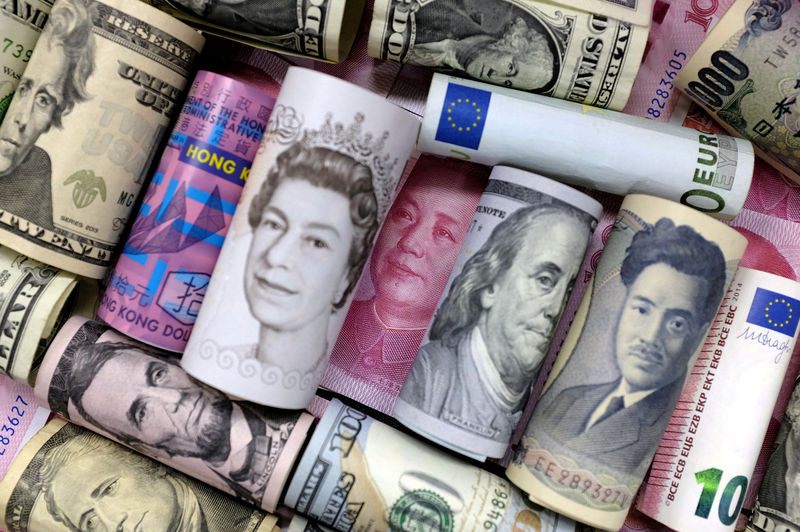By Shinichi Saoshiro
TOKYO (Reuters) - The dollar held steady against a basket of major currencies on Thursday after the Federal Reserve signaled its confidence about inflation and growth in the world's biggest economy, reinforcing views it will raise rates several more times this year.
Traders are now awaiting a host of indicators including non-farm payrolls to see if they offer more than a brief respite to the ailing dollar.
The Fed kept interest rates unchanged on Wednesday but said inflation is likely to quicken this year, bolstering expectations borrowing costs will continue to climb under incoming central bank chief Jerome Powell.
"The Fed's message was a little hawkish, but dollar reaction was limited as such a stance did not come as too much of a surprise," said Shin Kadota, senior strategist at Barclays (LON:BARC) in Tokyo.
"The heavy selling we saw on the dollar is beginning to run its course, but upbeat U.S. data would be needed for the currency to rebound further," Kadota said.
Upcoming U.S. data include Thursday's manufacturing ISM index and U.S. non-farm payrolls and average hourly earnings due on Friday.
The dollar index against a basket of six major currencies was steady at 89.127 (DXY) having crawled back from a three-year trough of 88.438 set last week. The index fell 3.2 percent in January.
The dollar edged up 0.2 percent to 109.36 yen
It had lost 3.1 percent against the yen in January, weighed by a bevy of factors including concerns about U.S. trade protectionism and lingering speculation the Bank of Japan was gearing up to begin an exit from its easy monetary policy.
"Dollar/yen is still in a consolidation phase," said Tareck Horchani, head of Asia-Pacific sales trading for Saxo Markets in Singapore, adding that the dollar's bounce was still looking tepid.
Demand for cross/yen pairs, such as the Canadian dollar against the yen (CADJPY=R), is helping to weigh on the yen and supporting the U.S. dollar, Horchani said.
Some traders are trying to put bullish bets on the Canadian dollar against the yen, after data on Wednesday showed strong growth in Canada's economy in November, he added.
"The demand (for Canadian dollar) has been quite strong, even in the options market," Horchani said.
The Canadian dollar
The euro last changed hands at $1.2417 (EUR=), having pulled away from a high of $1.2475 touched the previous day.
The common currency rose 3.5 percent in January, during which it scaled a three-year peak above $1.25, amid prospects for the European Central Bank to begin normalizing monetary policy this year.
That prospect got a boost earlier on Wednesday after last month's underlying euro zone inflation picked up pace.

The pound rose 0.1 percent to $1.4200